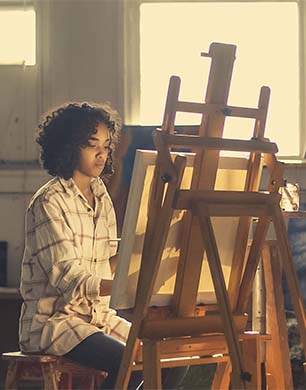
Photo Credit: Burst via www.pexels.com
Creative professionals are always finding that almost anything contributes to their career. For instance, a music producer may find that little audio soundscapes they come across in everyday life grants them a new way of thinking about a certain rhythm, or it may grant them a new sound to sample. Additionally, writers often find that while the worlds they construct may be fictional, they are certainly inspired by the world around us.
This means that in order to express the best of our creative passion and productivity, we need to understand our craft and then find out how to better funnel our creative intent through those terms. This means paying attention not only to what we work on, but how we work, and from there how we can improve our efforts.
For instance, a writer rarely has an idea, jots it down, and allows it to work flawlessly. It must be improved upon, and carefully considered, and sometimes even discarded. This means that the process of understanding our personal creativity can sometimes be a hard ask, but with the right inspiration, you may become even better than you had intended.
We think that with the following advice, you may just find that inspiration:
Finding Inspiration
So, how do we find inspiration? Well, as said, it can come from anywhere. But it’s also true that in order to be inspired, we need to submerge ourselves into something that we may not have before. For instance, a writer may find that if they want to write about a certain area, or set the location of their story in a certain place, they should visit in it person and learn just what the place actually has to offer. This is grounded and authentic inspiration.
Additionally, submerging yourself into your craft often brings inspiration with it as an automatic consideration. Even the greatest chefs in the world find time to dine at other establishments to see just what someone else’s’ take on gastronomy might be. This is how we learn from others as well as ourselves, and in the long run we can better our approach thanks to the efforts we place here. However, inspiration should not be considered a ‘work duty.’ It might be necessary for your work, but you can hardly schedule four hours of your day for the sole purpose of ‘getting inspired,’ as if this happens purposefully. All work and no play makes Jack a dull boy, and it’s play that will often open us up enough to see just what is out there, and what we may wish to research.
Keeping this in mind will, ironically, ensure that more inspiration comes to you, and staying ready to take notes or to delve into this feeling will certainly enable you to remain inspired by the world around you.
Networking Is Essential
Networking is essential when you’re a creative professional, at least for careers that require collaborative teamwork. But even the most isolationist practices, such as novel-writing, will require connecting to a great publishing house or editor to help you along your way. For certain creative careers, networking is an essential part of developing your professional standing and benefiting as a result.
We can often operate under the illusion that our work should guarantee us jobs if it’s good enough, and to some extent, that is absolutely true. But it’s not completely true. Sometimes, we may be selected for jobs based on how easy we are to work with, if we’re dependable and professional, or if we’re a presence in a certain scene. This means that it can’t hurt to be productive in your networking, even if that’s to be an encouraging voice and to communicate with those you respect. This, in itself, may help you once day secure your creative potential and expressiveness.
Finding Your Productive Space
It can also be worthwhile to find a productive space that enables you to better study and work on your creative development. An artist is nothing without his studio, a writer nothing without his typewriter and pen (or more accurately, mechanical keyboard and writing software), and creative industries require being hooked up to communicative and scheduling platforms in the best way.
This means learning to better isolate the worth of your craft through garden buildings, as these give you a chance to develop a home office in complete self-interest and security from the rest of your building. This can be important if you need a space to think, or to collect resources that will aid you, or simply to work through dilemmas and issues that we all encounter from time to time. A productive space like this can be absolutely essential, because in this world of shared and rented office spaces, continual online engagement and public profiles, having a place to completely call your own is a fantastic practical measure to ensure.
Studying The Greats
It’s worth the time to study the greats of your industry. If you’re an artist, for instance, you may decide to study the renaissance painters who contributed to or created various virtues of the art form you so love.
For someone involved in a more corporate setting, understanding how the best creative professionals made a business from their art can be a chief motivator, helping you realize that there’s money in everything, even the practices that can seem less conducive to a competitive living.
Studying the greats is not an approach intended to copy them, or to try and get ahead through finding knowledge no one else is aware of, rather it’s a means in which to pay respect to your craft, and to understand the long line of practised discipline you hail from. With this in mind, you can approach your work with a confidence and originally you may not have the courage to apply before now.
With this advice, we hope you can continually express the best of your creative passion and productivity. You deserve to feel that potential.

